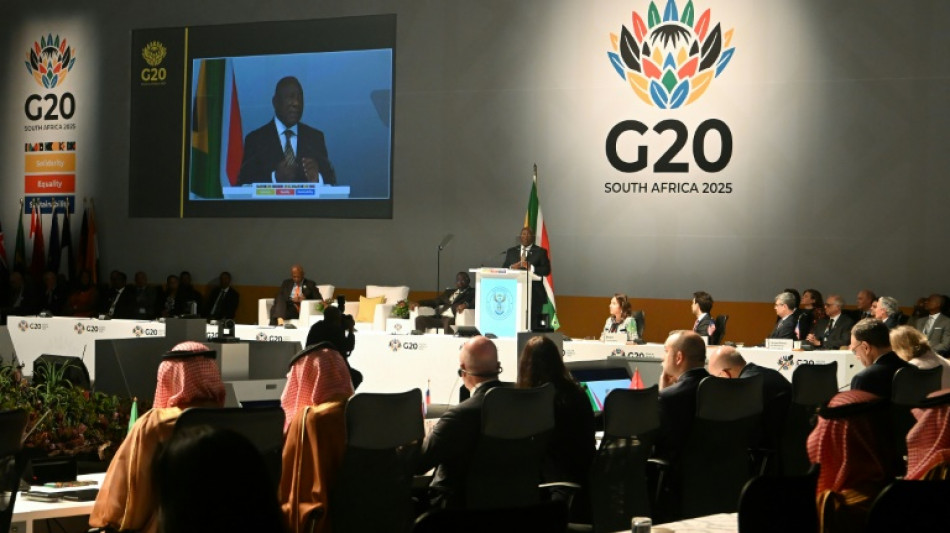
-
 Judge tells Australian mushroom murder jury to put emotion aside
Judge tells Australian mushroom murder jury to put emotion aside
-
Israel says 3 killed in Iran strike after Trump's ceasefire announcement
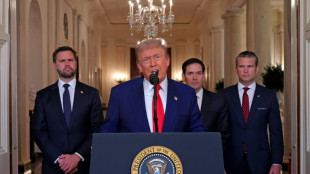
-
 Messi's Miami and PSG progress to set up Club World Cup reunion
Messi's Miami and PSG progress to set up Club World Cup reunion
-
Rock on: how crushed stone could help fight climate change
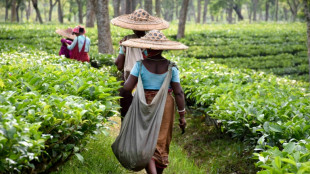
-
 Porto, Al Ahly out after sharing eight goals in thriller
Porto, Al Ahly out after sharing eight goals in thriller
-
Glamour, gripes as celebs head to Venice for exclusive Bezos wedding

-
 Messi to face PSG after Miami and Palmeiras draw to go through
Messi to face PSG after Miami and Palmeiras draw to go through
-
Schmidt warned he must release Wallabies for Lions warm-ups
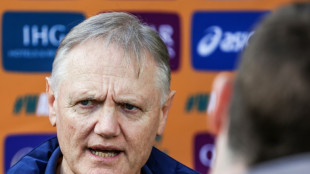
-
 Palmeiras fight back against Inter Miami - both teams through
Palmeiras fight back against Inter Miami - both teams through
-
With missiles overhead, Tel Aviv residents huddle underground
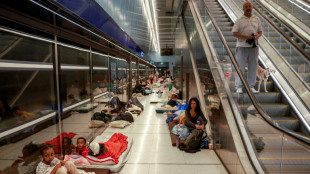
-
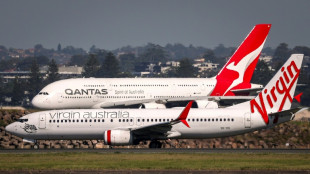 Virgin Australia surges in market comeback
Virgin Australia surges in market comeback
-
Asian stocks up as Trump announces Iran-Israel ceasefire
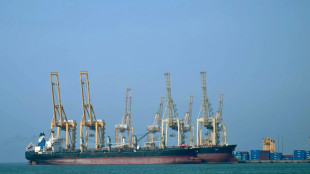
-
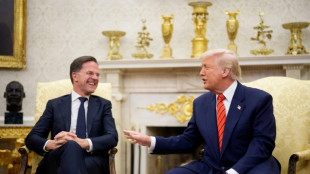 Flatterer-in-chief: How NATO's Rutte worked to win over Trump
Flatterer-in-chief: How NATO's Rutte worked to win over Trump
-
Iran signals halt to strikes if Israel stops
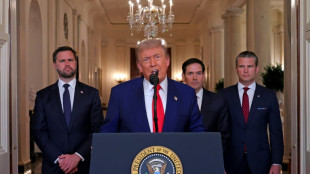
-
 NATO summit seeks to keep Trump happy -- and alliance united
NATO summit seeks to keep Trump happy -- and alliance united
-
Russian drone attacks kill three in northeast Ukraine
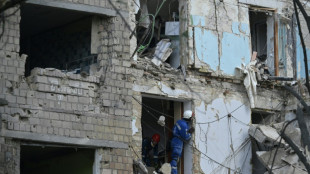
-
 Better than gold: how Ecuador cashed in on surging cocoa prices
Better than gold: how Ecuador cashed in on surging cocoa prices
-
Millions in US sweat out first extreme heat wave of year
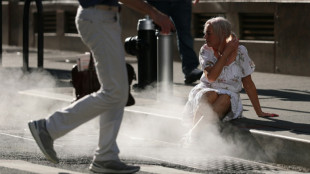
-
 Pro-Palestinian protest leader details 104 days spent in US custody
Pro-Palestinian protest leader details 104 days spent in US custody
-
Gender not main factor in attacks on Egyptian woman pharaoh: study

-
 'Throwing the book away' with no preparation for next season: Bayern's Kompany
'Throwing the book away' with no preparation for next season: Bayern's Kompany
-
Trump announces ceasefire between Iran and Israel
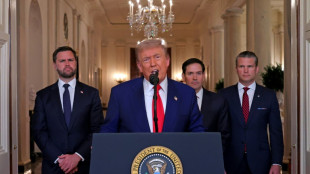
-
 US Supreme Court allows third country deportations to resume
US Supreme Court allows third country deportations to resume
-
Oil prices tumble as markets shrug off Iranian rebuttal to US
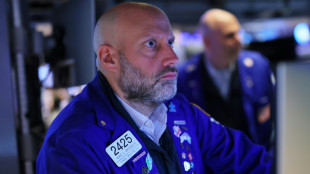
-
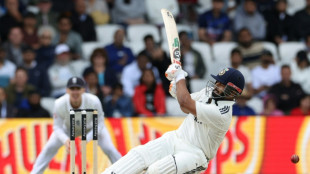 Rishabh Pant: India's unorthodox hero with 'method to his madness'
Rishabh Pant: India's unorthodox hero with 'method to his madness'
-
PSG ease past Seattle Sounders and into Club World Cup last 16

-
 Atletico win in vain as Botafogo advance at Club World Cup
Atletico win in vain as Botafogo advance at Club World Cup
-
Osaka, Azarenka advance on grass at Bad Homburg

-
 Haliburton latest NBA star with severe injury in playoffs
Haliburton latest NBA star with severe injury in playoffs
-
Trump wants quick win in Iran, but goal remains elusive
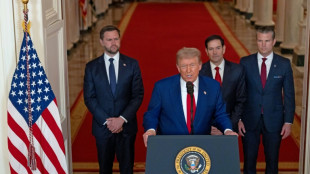
-
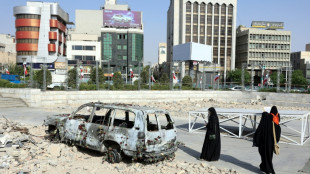 Iran attacks US base in Qatar, Trump says time to make peace
Iran attacks US base in Qatar, Trump says time to make peace
-
Kasatkina falls, Fonseca secures first win on grass at Eastbourne

-
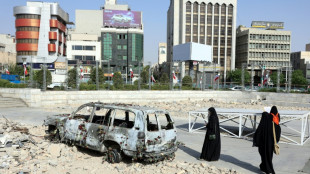 Iran attacks US base in Qatar in retaliation for strikes on nuclear sites
Iran attacks US base in Qatar in retaliation for strikes on nuclear sites
-
Club World Cup prize money does not mean more pressure: Chelsea boss Maresca

-
 Leeds sign Slovenia defender Bijol from Udinese
Leeds sign Slovenia defender Bijol from Udinese
-
E.coli can turn plastic into painkillers, chemists discover

-
 Bluff and last-minute orders: Trump's path to Iran decision
Bluff and last-minute orders: Trump's path to Iran decision
-
US strikes on Iran open rift in Trump's support base
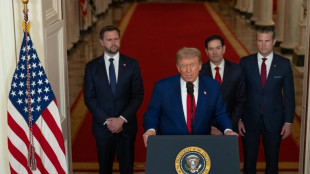
-
 Indiana's Haliburton has torn right Achilles tendon: reports
Indiana's Haliburton has torn right Achilles tendon: reports
-
England rally after Pant heroics to set up thrilling finish to India opener

-
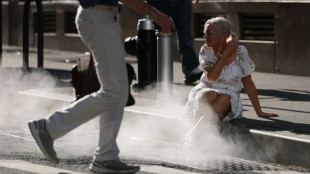 US hit by first extreme heat wave of the year
US hit by first extreme heat wave of the year
-
Holders Thailand among seven set for LPGA International Crown

-
 England set 371 to win India series opener after Pant heroics
England set 371 to win India series opener after Pant heroics
-
UK and Ukraine agree to deepen ties as Zelensky meets Starmer
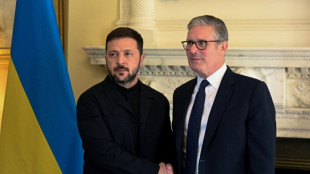
-
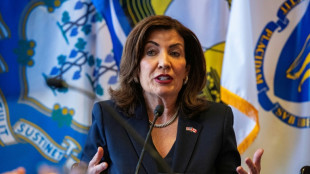 New York state to build nuclear power plant
New York state to build nuclear power plant
-
Syria announces arrests over Damascus church attack

-
 Bradley eyes playing captain role at Ryder Cup after win
Bradley eyes playing captain role at Ryder Cup after win
-
US existing home sales little-changed on sluggish market

-
 Top US court takes case of Rastafarian whose hair was cut in prison
Top US court takes case of Rastafarian whose hair was cut in prison
-
Greece declares emergency on Chios over wildfires


Global stability threatened by backslide in cooperation: S.Africa
The erosion of multilateralism threatens global growth and stability, President Cyril Ramaphosa warned Wednesday at a G20 finance meeting in South Africa marked by the absence of the US treasury secretary.
Two days of talks by finance ministers and central bank governors from the world's leading economies opened a week after a meeting of G20 foreign ministers was snubbed by US Secretary of State Marco Rubio, who complained of its "anti-Americanism".
"The erosion of multilateralism presents a threat to global growth and stability," Ramaphosa said in his opening address.
"At this time of heightened geopolitical contestation, a rules-based order is particularly important as a mechanism for managing disputes and resolving conflict," he said.
The G20, a grouping of 19 countries as well as the European Union and the African Union, is divided on key issues, from Russia's war in Ukraine to climate change, with world leaders scrambling to respond to drastic policy shifts from Washington since the return of US President Donald Trump.
"Multilateral cooperation is our only hope of overcoming unprecedented challenges, including slow and uneven growth, rising debt burdens, persistent poverty and inequality, and the existential threat of climate change," Ramaphosa said.
South Africa holds the rotating G20 presidency this year and has chosen the theme "Solidarity, Equality, Sustainability".
US Treasury Secretary Scott Bessent said on February 20 he would not attend the Cape Town meeting because he was too busy.
Just days before, Rubio had accused the G20 hosts of choosing an "anti-American" theme. It followed criticism from Trump about land reforms in South Africa aimed at redressing inequalities perpetrated during the apartheid era.
The United States was represented at the Cape Town meeting by Federal Reserve chief Jerome Powell.
The Group of 20 brings together the world's largest economies, which together represent around 85 percent of global GDP, to discuss international economic and financial stability.
- 'Dangerous world' -
While some countries chose not to send their finance ministers, those of Britain, Switzerland and France were present as was European Central Bank chief Christine Lagarde.
Britain's finance minister Rachel Reeves would stress at the talks that bolstering defence spending was necessary for economic growth, the UK Treasury said in a statement.
"It's clear we are facing a more dangerous world," Reeves was quoted as saying. "National security will always be the first responsibility of this government and is the bedrock of economic growth."
British Prime Minister Keir Starmer pledged Tuesday to boost defence spending to 2.5 percent of the economy by 2027, as uncertainty reigns over Trump's commitment to European security while he pursues talks with Russia over its war in Ukraine.
Ramaphosa said South Africa's priorities for its year at the helm of the G20 included strengthening the resilience of poorer countries to cope with natural disasters.
"The increasing rate of climate-induced natural disasters is disproportionately affecting countries that can least afford the costs of recovery and rebuilding," he said, calling for "innovative financing and insurance mechanisms" to boost funding for disaster prevention and reconstruction.
Another priority is to help developing economies cope with debt repayments, he said.
"Debt service costs are increasingly crowding out spending on education, healthcare and other social services, as well as infrastructure needed for economic development," he said.
The UN Development Programme said in a statement ahead of the meeting that ballooning debt service payments in the poorest countries had reached alarming levels and called for "bold, immediate" action to overhaul the borrowing system.
Interest payments exceed 10 percent of government revenue in 56 developing countries, nearly double the number from a decade ago, it said.
Without better access to more effective debt relief, many developing countries risk long-term solvency crises, it warned.
G.AbuHamad--SF-PST
